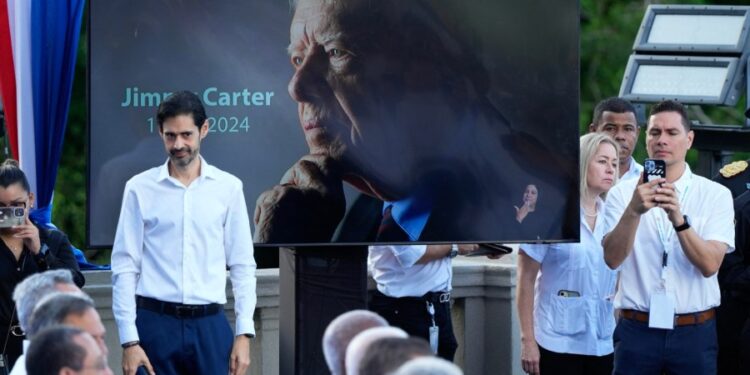
As the world hangs on every pronouncement of the president-elect, speculation abounds as to whether Donald Trump is just playing to an audience or is trying to intimidate to make a deal. He recently challenged the government of Panama over its sovereign control of the Panama Canal, potentially reopening one of the most divisive foreign policy issues of the 20th century.
Presidents since Eisenhower worried about the security of this vital waterway. The canal became a target as revolutionary forces in Central America increasingly threatened vital American interests.
President Jimmy Carter knew that the politics of negotiating away the direct ownership of the canal would be difficult, but he wasn’t one to back away.
In 1977, President Carter and Panamanian President Omar Torrijos signed two treaties, one which guaranteed neutral access to the canal by all nations, and the other transferring full control of the canal to Panama as of Dec. 31, 1999.
These treaties were ratified by the Senate in a 68 to 32 vote. The House of Representatives then narrowly passed implementing legislation in 1979.
I can attest to the excruciating pressure members were facing as I lobbied the issue on behalf of Carter’s State Department. The passion generated by those who opposed giving up a symbol of American ingenuity made this vote a very heavy lift for members of Congress. Members from both parties became profiles in courage for voting to support the treaties, casting the most difficult vote of their political life.
One vulnerable senator, Dennis DeConcini (D) of Arizona, sought to defend himself by proposing a reservation that would give the United States the explicit right to use military force to defend the canal. The Panamanian government threatened to reject the treaties if this reservation were to pass.
Language was then added to mollify the Panamanians to the effect that nothing in the treaty should be “interpreted as a right of intervention in the internal affairs of the Republic of Panama.”
Now a future president of the United States is threatening to use military force, not because the canal’s neutrality is threatened, but because he objects to the shipping fees Panama is charging. Words matter, and these words have the potential to relight a long-extinguished fire.
The Panama Canal is an international waterway utilized by shipping from all nations. If shipping companies do not wish to pay the established fee, they have the choice of taking a much longer and more costly route around Cape Horn.
The transit prices are set by this traditional supply and demand calculation, and, as in other capital transactions, price gouging is indeed possible. These disputes can best be resolved by appealing to the Panama Canal Authority.
Though Donald Trump seems to pay little attention to the Constitution, it may be useful for him to brush up on some of its more important provisions if he wants to avoid a third impeachment. A treaty, for example, is the supreme law of the land and equivalent to federal law.
The Panama Canal treaties were approved by a bipartisan coalition of senators who accepted a counterintuitive reality: Giving up the canal was the best way to retain its use.
In the end, despite the highly charged opposition to giving up “a piece of America,” Congress yielded to the pragmatic reality that the canal could be shut down if extreme nationalist forces decided to sabotage its operations. The canal and its many locks would be easy prey to terrorists or to an unfriendly government.
Many who voted for Donald Trump will be attracted to his bluster, his threats against small countries like Panama, or his intent to impose draconian tariffs on friends and foes. They may believe that he is simply attempting to strengthen his bargaining position.
Roger Fisher, in his seminal book “Getting to Yes: Negotiating Agreement Without Giving In,” demonstrates that this type of “positional bargaining” is not just inefficient and unproductive, it also leads to unwise outcomes, strained relationships and fragile agreements.
President Carter understood these principles when he negotiated the Camp David peace between Israel and Egypt and the Panama Canal Treaties. He knew well that a powerful America could only enhance its international standing by acting magnanimously and pursuing its interests by also acknowledging the interests of others.
J. Brian Atwood is a senior fellow at Brown University’s Watson Institute. He was an assistant secretary of State for congressional relations in the Carter administration and worked on the Panama Canal treaties and the implementing legislation. He later served as administrator of USAID in the Clinton administration.







